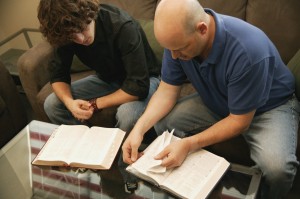So I stumbled across something interesting from Barna Group the other day. For those of you who don’t know, Barna Group has been around for about 30 years. They are primarily a research organization specifically analyzing religion and culture. Their new thing is a series of mini-books and DVDs called Frames. Each mini-book is 100 pages or less and is a combination of research, graphics, analysis, essay and questions. The stated goal is to provide “Thoughtful and concise, data-driven and visually appealing insights for anyone who wants a more faith driven and fulfilling life.” Season 1 of Frames looks at themes like orphan care, life in the information age, why church still matters and the challenges of womanhood from a distinctly Christian point of view.
I will confess that I haven’t read all of Season 1 yet. But there was one that caught my eye that I want to talk about. “20 and Something” looks at the generation of 20-Somethings who are often referred to as Millennials. It contains research about how Millennials view things like work, calling, marriage, family, faith and so on.
 There were a couple of reasons I wanted to read “20 and Something.” First, I have two boys who are about that age which puts me squarely in the “wants to understand” category. And secondly, “more young people” tends to be the magic answer churches are after these days. Let me explain. When I talk to churches about what would help them return to a state of robust health, I often hear some variation of, “If only we had more young people around.” So I wanted to see if this mini-book was helpful in that regard.
There were a couple of reasons I wanted to read “20 and Something.” First, I have two boys who are about that age which puts me squarely in the “wants to understand” category. And secondly, “more young people” tends to be the magic answer churches are after these days. Let me explain. When I talk to churches about what would help them return to a state of robust health, I often hear some variation of, “If only we had more young people around.” So I wanted to see if this mini-book was helpful in that regard.
Research showed that this younger generation is giving up on church often because they perceive that the church does not have their best interests at heart but they still want a meaningful life and are asking deeper questions. The church does have something to offer them but, “It will have to learn to genuinely connect the dots – from vocation to prayer life to Instagram feed – for a life of meaning.”
Besides Barna Group research and analysis, the mini-book contains an essay by David H. Kim, Executive Director of the Center for Faith and Work and Pastor of Faith and Work Redeemer Church, both in New York. Phyllis Tickle’s essay “Re:frame” is also included in the mini-book.
In his unpacking of the research data, David Kim went on to explain that generally this generation prizes authenticity, cohesiveness and tolerance which are words not often used to describe the church. He writes that Millenials are “Not looking for a hipper coffee bar, more contemporary worship or better cultural references in sermons.” Instead they are looking for depth and spiritual relevance that connects to the world they are living in. They want a faith that is authentic, charitable and embracing and for the most part they are not seeing it in today’s church.
Editorial note: those last two paragraphs have enough challenge packed into them to keep our churches busy for the next little while. Are we the kind of church people are looking for? Are we making those kinds of disciples – deep, authentic, charitable?
Phyllis Tickle closes with words that help the church figure out how or what next. She challenges Millenials to find their center which will serve as the foundation for life. She challenges churches to help all people find this type of center using spiritual disciples and practices such as silence, study, Sabbath, fasting, tithing, and prayer. And that is the challenge for all of us: to be the kind of church and people who help others discover and develop those places where they can meet Christ in the midst of their very real lives. As Tickle says, “That is the center we all need.”
Final editorial note: this is the nub of the challenge for all of us. Are we developing helpful discipleship practices in our own lives that serve as our foundation center? Are we helping others especially those younger than us to do the same? Are we making disciples? That’s what we need to be doing if we want to be a healthier church.




